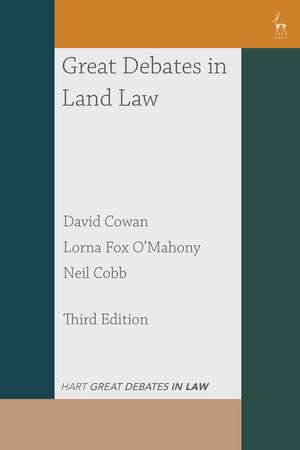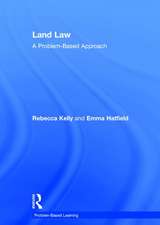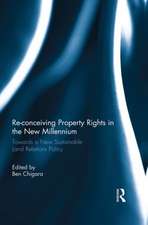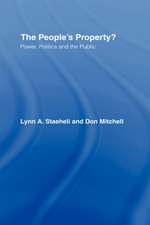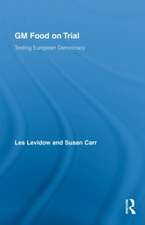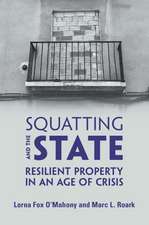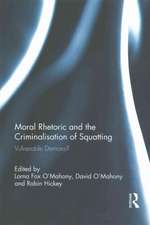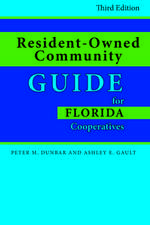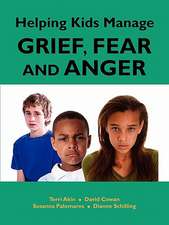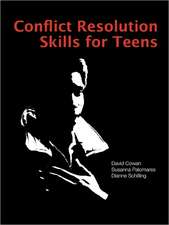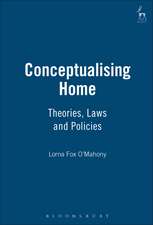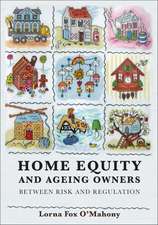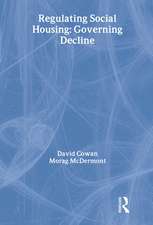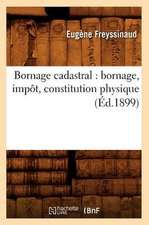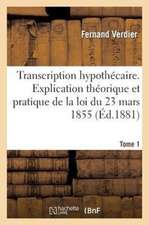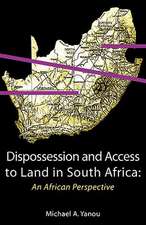Great Debates in Land Law: Great Debates in Law
Autor David Cowan, Lorna Fox O'Mahony, Neil Cobben Limba Engleză Paperback – 19 apr 2023
| Toate formatele și edițiile | Preț | Express |
|---|---|---|
| Paperback (1) | 226.68 lei 22-36 zile | +55.32 lei 5-11 zile |
| Bloomsbury Publishing – 19 apr 2023 | 226.68 lei 22-36 zile | +55.32 lei 5-11 zile |
| Hardback (1) | 595.12 lei 43-57 zile | |
| Bloomsbury Publishing – 19 apr 2023 | 595.12 lei 43-57 zile |
Preț: 226.68 lei
Preț vechi: 258.80 lei
-12% Nou
Puncte Express: 340
Preț estimativ în valută:
43.38€ • 45.40$ • 36.10£
43.38€ • 45.40$ • 36.10£
Carte disponibilă
Livrare economică 10-24 martie
Livrare express 21-27 februarie pentru 65.31 lei
Preluare comenzi: 021 569.72.76
Specificații
ISBN-13: 9781509962754
ISBN-10: 1509962751
Pagini: 336
Dimensiuni: 156 x 234 x 22 mm
Greutate: 0.47 kg
Ediția:3
Editura: Bloomsbury Publishing
Colecția Hart Publishing
Seria Great Debates in Law
Locul publicării:London, United Kingdom
ISBN-10: 1509962751
Pagini: 336
Dimensiuni: 156 x 234 x 22 mm
Greutate: 0.47 kg
Ediția:3
Editura: Bloomsbury Publishing
Colecția Hart Publishing
Seria Great Debates in Law
Locul publicării:London, United Kingdom
Caracteristici
Covers material that goes beyond what is included in core textbooks, helping students to excel on their course and earn improved marks in essays and exams
Notă biografică
David Cowan is Professor of Law and Public Policy at the University of Bristol, UK. Lorna Fox O'Mahony is Professor of Law at the University of Essex, UK. Neil Cobb is Senior Lecturer in Law at the University of Manchester, UK.
Cuprins
Preface1. Themes of Land Law2. Tenure and Estates3. The Law of Property Act 19254. Leases5. Land Registration6. Unlawful Occupation of Land: Squatting and Adverse Possession7. Third-party Interests in the Use and Control of Land8. Public Law, Human Rights and Property Law9. Law, Equality and Housing10. Mortgages and Security Interests in Land11. Cohabitation: Rights to the Home12. Conclusions: What is the point of Land?
Recenzii
This impressive text perfectly illustrates the exciting dynamism of land law. By placing the often-perceived technical and complex rules in their wider context, the authors bring the subject area to life. The text clearly captures the messy, politicized and value-driven nature of the practice area in a manner that is accessible to students and scholars alike.
Teaching land law to undergraduates is a challenge. It is comprised of complex and abstract legal rules, is often expressed in arcane language, and requires students to grasp what seems to be elusive land law logics. Great Debates in Land Law is an essential tool if you want to make the abstract real, and if you want your students to construct coherent and critical arguments about land law rather than simply regurgitating half-baked information. It reveals the flaws in concepts such as ownership by contextualising them in situations that students are likely to encounter, and does so in an enjoyable and accessible manner. I cannot recommend it highly enough.
This superb book brings land law to life. It follows topics familiar to students, but prompts deeper contextual thinking, revealing the complex, messy, value-laden realties that lie behind the formal doctrines of land law. It is a must-read for anyone interested in the relationship between property and society.
Great Debates in Land Law is of immense value in taking students beyond a purely black-letter understanding of Land Law. The authors use their very considerable experience to illuminate the societal context in which Land Law operates, exploding the myth that it is merely a dry, technical and detached discipline. Highly recommended.
This book - with its extensive range of academic references - will stretch ambitious students' understanding and provide invaluable material for teachers of land law. The authors' approach is critical and contextual, including references to the Grenfell Tower tragedy and the implications of the COVID-19 pandemic. Organised around typical course contents (plus human rights, public law and equalities), the key themes of land law are woven through challenging points of debate.
For students, property law can seem dusty and dry. This is the book that will spark their interest in the subject. Here are the controversies that will convince them that property is about real-world problems that the law can both create and solve.
This book rejects the traditional portrayal of Land Law as a remote and challenging environment, and instead maps a vibrant and evolving landscape. The engaging and contextual approach adopted will assist students in navigating this important and exciting terrain, and may even facilitate their enjoyment of the journey.
Teaching land law to undergraduates is a challenge. It is comprised of complex and abstract legal rules, is often expressed in arcane language, and requires students to grasp what seems to be elusive land law logics. Great Debates in Land Law is an essential tool if you want to make the abstract real, and if you want your students to construct coherent and critical arguments about land law rather than simply regurgitating half-baked information. It reveals the flaws in concepts such as ownership by contextualising them in situations that students are likely to encounter, and does so in an enjoyable and accessible manner. I cannot recommend it highly enough.
This superb book brings land law to life. It follows topics familiar to students, but prompts deeper contextual thinking, revealing the complex, messy, value-laden realties that lie behind the formal doctrines of land law. It is a must-read for anyone interested in the relationship between property and society.
Great Debates in Land Law is of immense value in taking students beyond a purely black-letter understanding of Land Law. The authors use their very considerable experience to illuminate the societal context in which Land Law operates, exploding the myth that it is merely a dry, technical and detached discipline. Highly recommended.
This book - with its extensive range of academic references - will stretch ambitious students' understanding and provide invaluable material for teachers of land law. The authors' approach is critical and contextual, including references to the Grenfell Tower tragedy and the implications of the COVID-19 pandemic. Organised around typical course contents (plus human rights, public law and equalities), the key themes of land law are woven through challenging points of debate.
For students, property law can seem dusty and dry. This is the book that will spark their interest in the subject. Here are the controversies that will convince them that property is about real-world problems that the law can both create and solve.
This book rejects the traditional portrayal of Land Law as a remote and challenging environment, and instead maps a vibrant and evolving landscape. The engaging and contextual approach adopted will assist students in navigating this important and exciting terrain, and may even facilitate their enjoyment of the journey.
